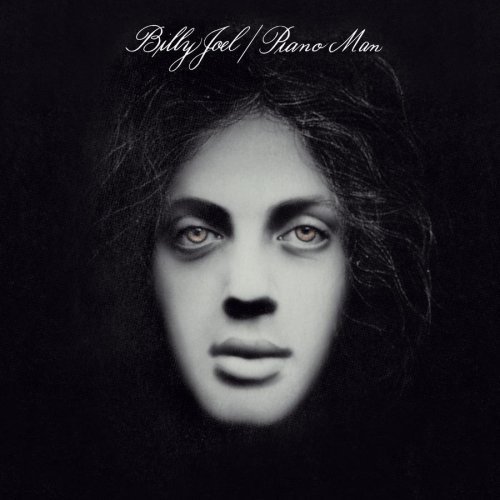
Piano Man (1973)

1. Travelin' Prayer
2. Piano Man
3. Ain't No Crime
4. You're My Home
5. The Ballad of Billy the Kid
6. Worse Comes to Worst
7. Stop in Nevada
8. If I Only Had the Words (To Tell You)
9. Somewhere Along the Line
10.Captain Jack
With his sophomore effort, Piano Man, Billy Joel stepped decisively into public consciousness, both musically and biographically. The title track, drawn directly from Joel’s time performing in Los Angeles piano bars, became not only his first major hit but also the defining anthem of his early career. Despite the lukewarm reception of his debut, Cold Spring Harbor, this follow-up revealed a maturing songwriter whose flair for storytelling and melodic construction had sharpened significantly.
The autobiographical nature of Piano Man provides its emotional core, but the album’s strength lies in the diversity and quality of its supporting material. The Ballad of Billy the Kid, an elaborate and theatrical composition, stands out for its rich orchestration and narrative ambition. Though the lyrics bear no factual resemblance to the real outlaw, the arrangement, replete with sweeping strings, foreshadows Joel’s later interest in classical forms and grand musical gestures.
Equally noteworthy is Captain Jack, a brooding exploration of suburban ennui and drug dependence, delivered with unflinching honesty and dramatic weight. It remains one of Joel’s most enduring deep cuts, a song that marries thematic gravity with dynamic musical structure. Its reception, particularly in live settings, solidified its place among his most respected early works.
The remainder of the album is less uniformly strong, but still compelling. Travelin’ Prayer, which opens the record, is a brisk and engaging blend of folk and bluegrass idioms. Tracks such as Ain’t No Crime and Stop in Nevada bear the hallmarks of overproduction, but maintain enough melodic interest to carry through. Joel’s continued lyrical naïveté is evident in places—particularly in Worse Comes to Worst and If I Only Had the Words (To Tell You)—yet the production often elevates these songs beyond their textual limitations.
Joel’s performance is marked by confidence and range, and while the backing musicians lack the cohesion of the classic ensemble he would later assemble under producer Phil Ramone, the album as a whole demonstrates a significant leap forward in artistic coherence and commercial viability. It marks the point at which Joel ceased to be a hopeful talent and became a recognizable voice in American popular music.
Piano Man may be best remembered for its title track, but its broader contents suggest a young artist wrestling with ambition, style, and the weight of self-invention. It is a transitional record, but a vital one—rich in promise and increasingly sure of its purpose.
Back To Main Page
Go To Next Review